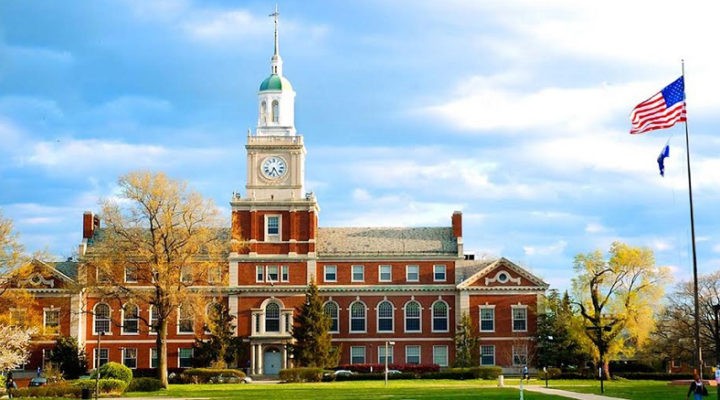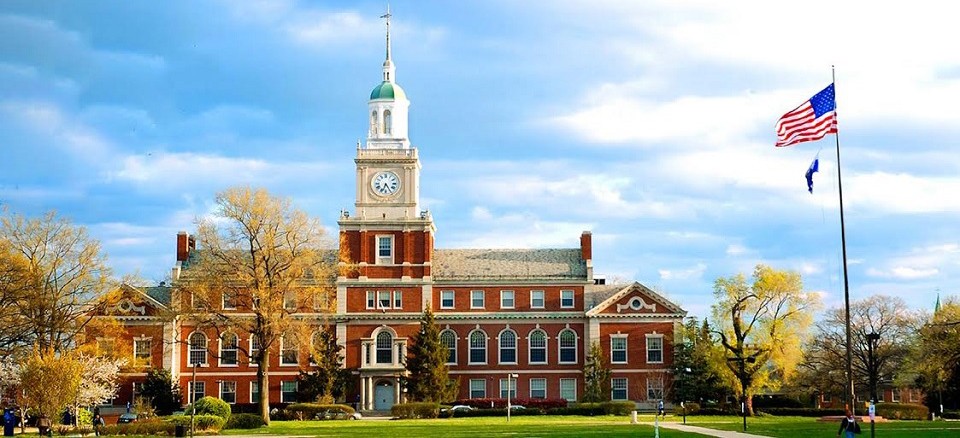The president of a historically Black college with deep Baptist roots has joined an array of HBCU leaders to demand their under-funded institutions receive a bigger slice of the federal budget currently being drafted by Congress.
Kevin Cosby of Louisville-based Simmons College of Kentucky, speaking in a recent radio interview, expressed deep disappointment that President Biden’s initial pledge to provide billions to the physically and financially ailing African American institutions has been whittled down to $2 billion — for which they must compete with larger, predominantly white colleges and universities that also serve minorities.
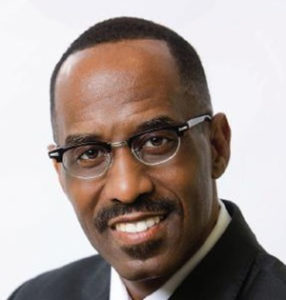
Kevin Cosby
Historic Black Colleges and Universities “should be funded not simply because of the critical role they play in educating Black Americans, but they should be funded as a justice issue,” Cosby said on WBUR, a National Public Radio station in Boston.
It’s unfair to pit struggling HBCUs against mostly white institutions simply because the latter already are well financed through government funding, grants and endowments, Cosby added. “We want to be colorblind, but the fact of the matter is in these United States we’re not color blind, we’re history blind. And because we’re history blind, we’re justice blind.”
Political realities facing the ongoing budget reconciliation process threaten to keep historically Black colleges and universities on the margins.
In hopes of gaining passage in a closely divided Congress, Biden’s original $3.5 trillion spending plan has been whittled down in several key areas, including physical infrastructure improvements that originally earmarked $20 billion for HBCUs, which have lagged woefully behind their mostly white counterparts in financial gifts, endowments and state and federal allocations.
“Although HBCUs generate a significant return on investment, they are historically underfunded, face discrimination with investments, and have tighter budgets based almost exclusively on tuition from underserved students,” the presidents of 37 United Negro College Fund member institutions said in an Oct. 1 open letter to U.S. House and Senate leaders.
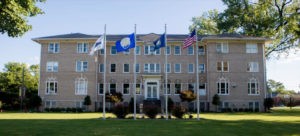
Simons College campus in Louisville, Ky.
“Nearly 75% of HBCUs students are Pell Grant eligible, 52% are first‐generation scholars, and 94% receive some type of financial aid. Taken together, HBCUs may be underfunded, but they are on the front lines of educating students who most need access to the transformative power of higher education,” the presidents reported.
They called on Congress to pass legislation that strengthens predominantly Black institutions academically, administratively and financially by investing in STEM, computing and biotechnology programs and by ending historic and consistent discrimination in the dispersing of development grants.
“HBCUs are a great return on investment as they represent only 3% of all public and nonprofit private colleges and universities but enroll 10% of African American undergraduates; graduate 17% of all African Americans with bachelor’s degrees; and produce 24% of African Americans with degrees in STEM fields,” the letter noted.
HBCU graduates constitute about 80% of Black judges and half each of Black lawyers and physicians, the letter added. The 2021 graduates of those institutions will earn about $130 billion more over their lifetimes than those without degrees.
“HBCUs also generate a significant amount of economic activity as they annually generate 134,090 jobs and generate $14.8 billion in total annual economic activity for their local and regional economies.”
Yet, the combined total $3.9 billion in endowment between the nation’s 107 HBCUs is less than many single, mostly white educational institutions, a fact that contributes to decaying physical infrastructures. This reality should preclude the institutions from having to compete with wealthier, predominantly white schools, the presidents believe.
The combined total $3.9 billion in endowment between the nation’s 107 HBCUs is less than many single, mostly white educational institutions.
“We have long made the case of a history of systemic discrimination which has allowed HBCUs to be chronically underfunded,” the presidents said in the letter. “To structure grant programs where HBCUs are required to compete with ‘MSIs’ (minority serving institutions) which happen to have large endowments and already have strong research‐intensive components only serves to extend the history of treating HBCUs as lesser than.”
Simmons College has been no stranger to that lesser-than dynamic, said Chris Caldwell, its vice president for academic affairs.
“Simmons College of Kentucky has been in existence since 1879. The first gift in the college’s history from a local foundation was received just 15 years ago,” he said. “For generations, white institutions in Kentucky were the recipients of major gifts that built significant endowments. Meanwhile, Simmons survived on modest gifts from Black churches and on the nickels and dimes sacrificially given by people hoping their gifts would lift others out of the poverty they were living in.”
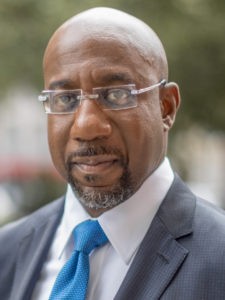
Raphael Warnock
For HBCUs, one of the effects of that poverty has been crumbling buildings, said U.S. Sen. Raphael Warnock, D-Ga., a Baptist minister and graduate of Morehouse College, a historic Black institution in Atlanta.
“Morehouse, like a lot of our schools, has been punching above its weight. These schools have been doing so very much for so many people, for so little, for so long,” Warnock told NPR’s Ailsa Chang on Oct. 5.
“That is a story that in many ways is inspiring, it is a kind of story that says, ‘We’re going to make a way out of no way,’ as we say in the Black church,” said Warnock, a Baptist pastor.
But HBCUs need fair financial assistance to survive in the modern educational environment, he added. “I think it would be a mistake for us as a country to think that just because these schools have always punched above their weight, they should continue to do so, that somehow they will continue to thrive in a 21st century technological digital age without the much-needed resources that they deserve.”
One of the key areas of need has to do with infrastructure, he explained. “There was a recent survey of some 79 HBCUs, and 70 of those HBCUs reported that more than 40% of their building space needed repair or complete replacement.”
Cosby added that Simmons College needs the robust federal contributions originally proposed by President Biden to boost operations and shore up structural deficiencies on campus.
“One of the things our school plans to do is add more programs, add more wrap-around services, and what is needed in all HBCUs is a restoration of the physical infrastructure. The buildings are in such disrepair on all of our campuses,” he said. “Like all HBCUs, we suffer from economic deprivation as it relates to endowments.”
Cosby said it takes “buildings, bodies and bucks” to operate a healthy university.
Cosby added that it takes “buildings, bodies and bucks” to operate a healthy university. “And in order to have the bodies and in order to have the buildings, you have to have the bucks. Unfortunately, Black institutions have been excluded and Black institutions reflect the exclusion of Black people, period. So, Black institutions do not suffer for the lack of competency, character or capacity. We suffer from the lack of cash, connections and considerations.”
He added that historically Black colleges and universities were founded in the post-slavery era when African Americans were not allowed to attend existing white institutions.
“When you consider the fact that we do such a disproportionately superb job in educating Black Americans it is critical that HBCUs be funded so we might continue this sacred mission,” he said. “And HBCUs do not exist, as some would suggest, for purposes of segregation. They exist for purposes of celebration.”
Related articles:
Historically black college to become home to CBF seminary
Southern Seminary leadership nixes idea of reparations for historically Black college

